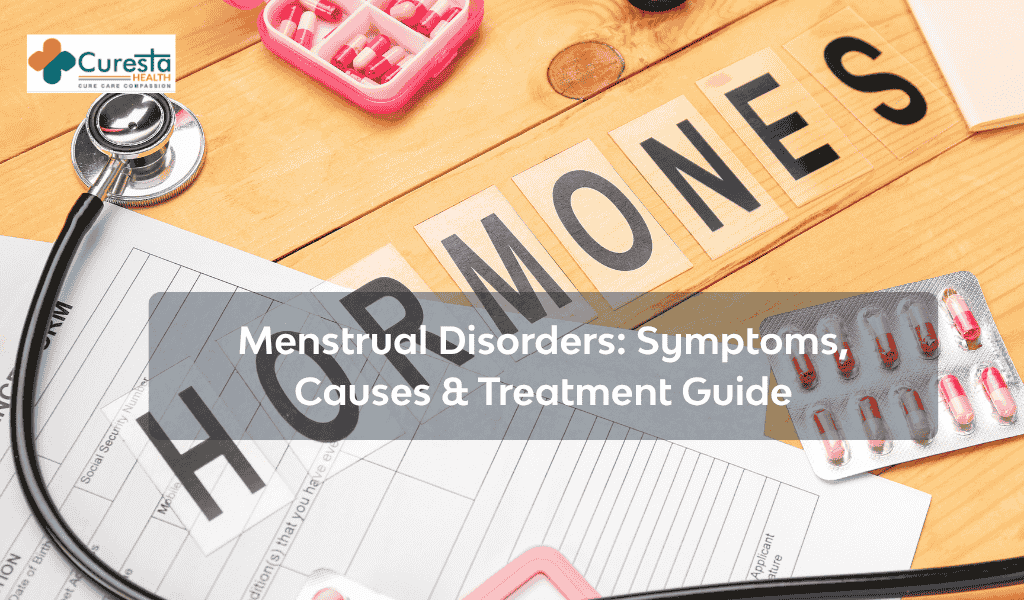



A healthy menstrual cycle is a vital sign of overall reproductive health, reflecting a woman’s hormonal balance and well-being. Unfortunately, menstrual disorders affect many women and are often misunderstood or left untreated, leading to discomfort and emotional distress. Whether it’s irregular periods or menstrual tension, understanding common disorders is the first step towards effective management and treatment. This blog aims to help you identify common menstrual disorders and offers guidance on managing and treating them effectively.
Menstrual disorders refer to abnormalities in the frequency, duration, flow, or symptoms of menstruation. These conditions can range from irregular cycles to severe menstrual pain or heavy bleeding. Such disorders not only affect physical health but can also impact a woman’s emotional and mental well-being. Experiencing frequent or absent periods, painful menstruation, or mood swings can significantly disrupt daily activities, relationships, and overall quality of life. It's essential to recognise these signs early and seek appropriate treatment to prevent long-term consequences.
There are several types of menstrual disorders that women may experience. Here are 8 of the most common:
Several factors can contribute to the development of menstrual disorders. Hormonal imbalances, often caused by conditions like Polycystic Ovary Syndrome (PCOS) or thyroid disorders, can affect the regularity of periods. Stress, unhealthy lifestyle habits, and drastic weight changes can also disrupt menstrual cycles. Medical conditions such as uterine fibroids or endometriosis may contribute to excessive bleeding or pain. Additionally, the use of certain contraceptives or medications can affect the menstrual cycle. Understanding the underlying cause of your symptoms is essential for effective treatment.
It’s important to identify menstrual disorders early to receive the right care. Key signs to watch for include:
If you experience any of these signs, it’s time to consult a gynaecologist. Maintaining a menstrual diary or using an app helps track your cycle, can help provide useful insights and assist your doctor in diagnosis.
There are several ways to manage and treat menstrual disorders effectively:
If you experience excessive bleeding that soaks through sanitary products within hours, severe pain that isn’t relieved by medication, or symptoms of anaemia (dizziness, weakness, fatigue), you should seek quick medical attention. Prompt treatment can help prevent complications and ensure proper care.
Recognising menstrual disorders early and seeking professional care is crucial for your overall health. Whether you experience irregular periods, pain, or heavy bleeding, there are various treatment options available to help you manage your symptoms and maintain a healthy reproductive system. Don’t hesitate to seek help; early intervention is key to ensuring long-term health and well-being.
If you're struggling with menstrual disorders, book an appointment with our team of experts today. At Curesta Health, we provide personalised treatment plans tailored to your needs, whether you're dealing with irregular cycles, painful periods, or other symptoms. Our expert team is here to help you achieve better menstrual health and quality of life. Book your appointment now!
What treatments are available for heavy periods?Treatments for heavy periods may include hormonal therapy, medication, or surgery, depending on the underlying reasons. Consult a doctor for personalised advice